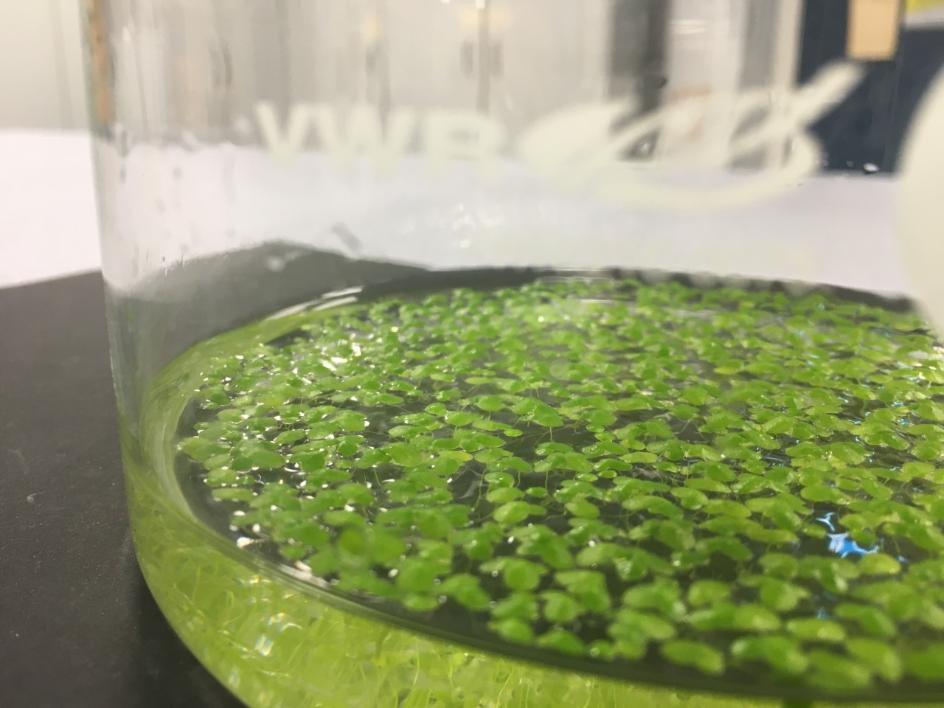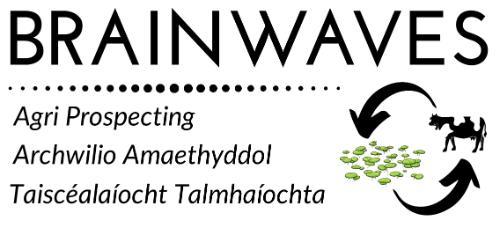About BRAINWAVES
Agriculture and waste management
Agriculture in both Ireland and Wales comprises strong dairy and beef industries. These industries are significant producers and exporters to global markets, as well as major rural employers. Currently, there are an estimated 1.4 and 0.5 million dairy cows in Ireland and Wales, respectively, and these cows excrete up to 40-60kg of waste per cow per day. The waste includes a mixture of organic solids, nitrogen, potassium and phosphate. Storage and further management of this resource does involve serious costs for farmers.
Aquatic ecosystem pollution
Pollution of aquatic ecosystems is a major threat to biodiversity and to the sustainability of communities across the globe. Excessive release of nitrogen- and phosphorus-rich effluents into our streams, rivers, lakes and estuaries leads to extreme algal and bacterial growth, and subsequent in-water oxygen depletion. The resulting environmental degradation can kill aquatic organisms, such as invertebrates and fish. This negatively affects the wider availability of key ecosystem services on which we all rely. With expected increases in global food production, there is a pressing need for agriculture to be carbon-friendly, while protecting water quality and biodiversity. National conversations are beginning to highlight these threats, but much work remains to be done.
This is where Brainwaves comes in!
Circular Economy
Closed-loop production systems are often referred to as the Circular Economy. This approach involves minimising the use of inputted raw materials and loss of outputs through waste recovery. In short, the purpose is to reduce, reuse and recycle existing waste. Valorisation, i.e. obtaining valuable products from waste, is an important part of this.
Innovative technologies and miracle plants
Common duckweed (Lemna minor) is native to Ireland and Wales. Duckweeds are amongst the fastest growing plants on the planet, are tolerant of ammonium (present in farm waste), and produce essential amino acids. Duckweeds have been demonstrated to grow on various waste streams from which they can uptake plant nutrients, thus reducing nutrient levels in waste waters. The resulting high-protein duckweed biomass represents a valuable agri-feedstock, with the potential to replace imported soybean, reducing reliance of farmers on imported feed. In this way, the production of a high value, protein-rich agricultural feed is associated with environmental remediation. This is the Circular Economy in action.
Harnessing the Circular Economy for farmers
Building on existing research Brainwaves will develop innovative, economically viable technologies to grow common duckweed on farm waste and integrate these with local conditions for Irish and Welsh farmers. Capitalising on the strong societal interest in sustainability, together with advances in growth technology, we will develop indoor and outdoor demonstration systems to maximise duckweed growth and phytoremediation capacity, built in collaboration with Irish and Welsh SMEs.
Duckweed crops will be grown either in low cost, outdoor pond systems equipped with sensors for nutrient monitoring (Work Package 2), or grown in climate controlled, LED-illuminated, vertically stacked hydroponic systems (Work Package 3). Brainwaves will support and guide farmers and other end-users in the use of these systems. Demo workshops will show stakeholders how duckweed-based systems can be exploited for cleaning contaminated waters. Novel applications for the duckweed biomass will also be explored through collaboration with feed-industry stakeholders (Work Package 5).
The Brainwaves closed loop approach in a nutshell
Problem
- Farm waste is costly to store and heavily regulated
- It can cause environmental damage if improperly released
- Strong national and EU efforts to reduce effluent pollution in water bodies
Idea
- 'Miracle plant' common duckweed (lemna minor) has been linked to wastewater remediation
- Duckweed is fast growing, and native to Ireland and Wales
- Duckweed to be grown on wastewater at our purpose-built onsite facilities
- Our team of plant scientists develop and optimise indoor and outdoor growth systems
Results
- Duckweed uptakes nutrients (nitrates and phosphates) from the waste stream as it grows
- Nutrient recovery in the form of duckweed biomass
- Aim to develop workable model system for farms
Outputs
- Cleaned wastewater (for re-use or release)
- Valuable by-product (high-protein feed source from duckweed biomass), reducing farmers' dependence on imported soybean feedstuffs
- Carbon sequestration
Duckweed Stock Cultures at UCC


